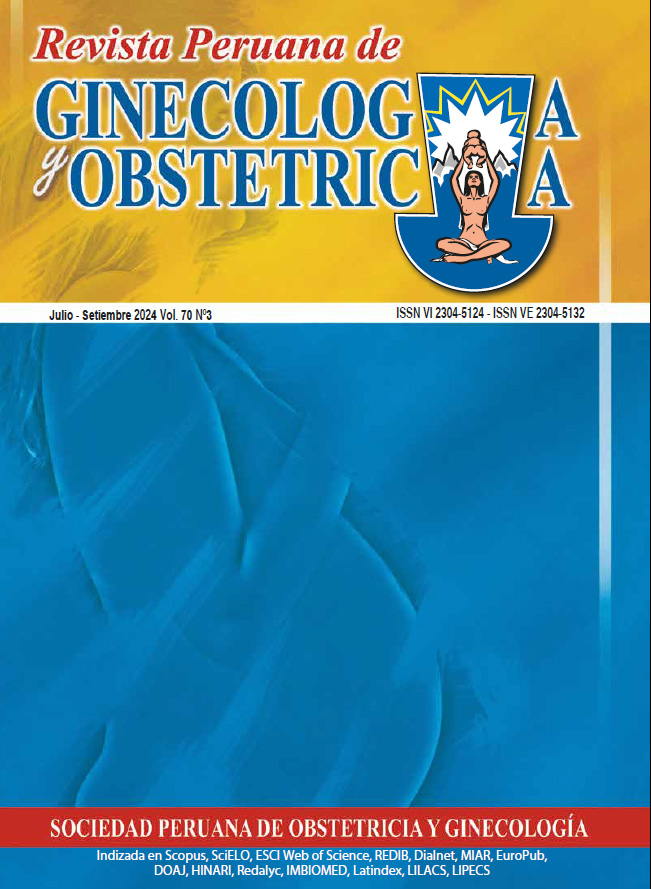Perinatal and Postnatal Outcomes of Fetal Cardiac Rhabdomyoma: A Single Center Experience of Six Year
DOI:
https://doi.org/10.31403/rpgo.v70i2660Keywords:
Rhabdomyoma, fetal, Hydrops fetalis, Fetal outcome, Tuberous sclerosisAbstract
Introduction: Fetal cardiac tumors are rare and generally have a good prognosis
depending on location and size. Objective: To examine perinatal and postnatal
outcomes along with ultrasound and genetic findings of fetal cardiac rhabdomyoma.
Methods: This retrospective cohort study was conducted in a single tertiary center.
Ten prenatally diagnosed cases of fetal cardiac rhabdomyoma were included in
the study. The data obtained included maternal characteristics, gestational age at
diagnosis, echocardiographic features including tumor size, number and location,
other antenatal ultrasound findings, genetic and pathological examinations,
gestational age at birth, neonatal outcomes, and postnatal long-term outcomes.
Results: In half of the cases (five), multiple tumors were detected sonographically.
Tumor sizes ranged from 5 to 38 millimeters (mm). Four (40%) of the cases had
additional cardiac anomalies such as right ventricular hypoplasia, left ventricular
hypoplasia and pericardial effusion. Additionally, hydrops fetalis was detected in
three (30%) cases. One case died at 26 weeks gestation. One case was terminated at
the request of the family due to the detection of a mutation in the tuberous sclerosis
complex (TSC) gene. Hydrops fetalis was significantly more common in cases with
fetal and neonatal deaths (60% vs. 0%; p=0.038). The TSC gene mutation was not
associated with fetal and neonatal deaths. TSC gene mutation was detected in
4 of the cases (40%) and there was a family history in one of these cases (25%).
Conclusion: Fetal cardiac rhabdomyomas can cause prenatal and postnatal deaths
due to heart failure. Furthermore, fetal rhabdomyomas are associated with TSC
regardless of family history.
Downloads
Downloads
Published
How to Cite
Issue
Section
License
Copyright (c) 2024 Sevim Tuncer Can, Ceren Saglam, Raziye Torun, Zubeyde Emiralioglu Cakır, Baris Sever, Mehmet Ozer, Ibrahim Omeroglu, Halil Gursoy Pala, Tulay Demircan Sirinoglu, Hakan Golbasi

This work is licensed under a Creative Commons Attribution 4.0 International License.
Esta revista provee acceso libre inmediato a su contenido bajo el principio de que hacer disponible gratuitamente la investigación al publico, lo cual fomenta un mayor intercambio de conocimiento global.















